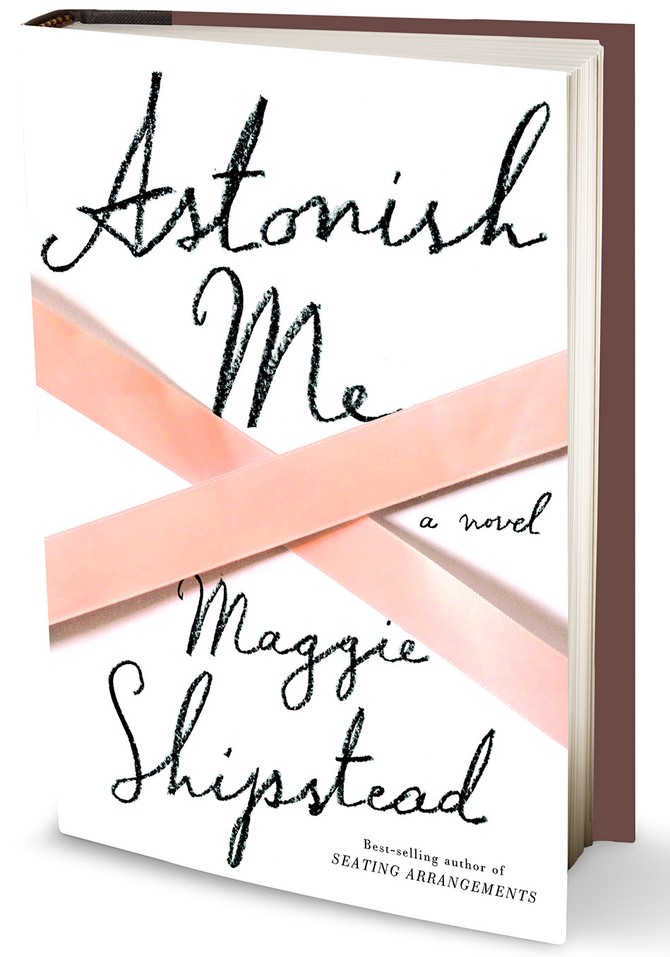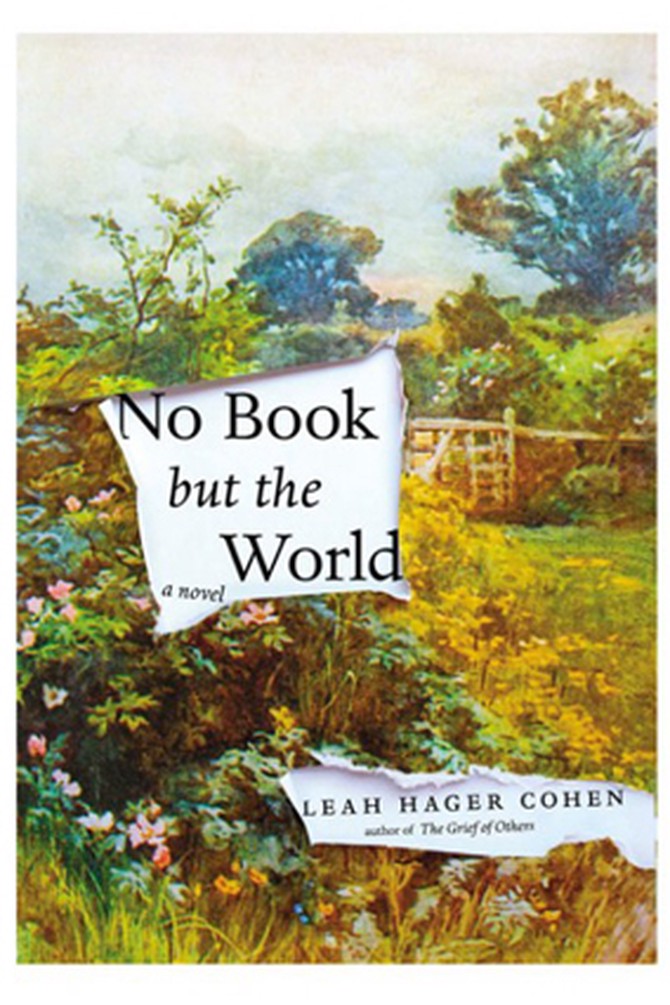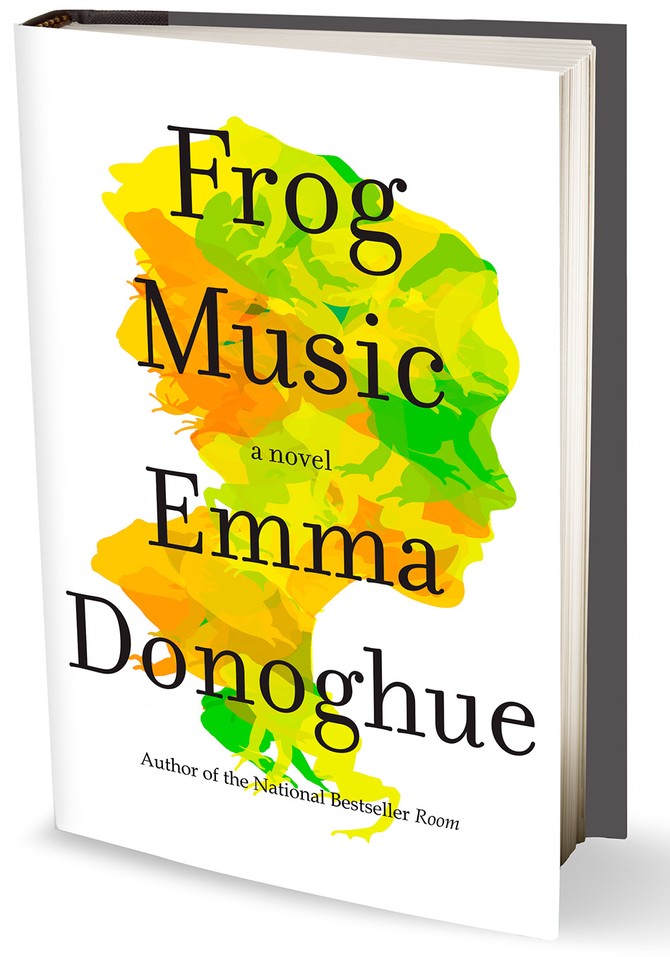Oprah.com's Book of the Week
Each week, we'll let you know about the new releases the editors of Oprah.com couldn't stop reading.

Astonish Me
By Maggie Shipstead272 pages; Knopf
January 1975, Toronto. Joan Joyce, a lackluster member of the corps de ballet, sits in the getaway car, one hand poised to turn the key in the ignition, the other ready to switch on the headlights. After a fling in Paris with the world's most famous ballet dancer, Arslan Rusakov, she has been chosen—by Arslan himself—to help him defect from the Soviet Union. He exits through the stage door, bolts for the car in full costume, and climbs into the backseat, and Joan smuggles him across the border, to New York City. Arslan epitomizes the physicality and star power Joan will never have, which makes her desire for him all the more potent, and poignant. Their ensuing relationship changes her "sensation of being alive," but doesn't alter her career trajectory.
Maggie Shipstead's thrilling second book, Astonish Me, is an homage to, and exposé of, the exhilarating, punishing world of ballet; it's also a searing rumination on insecurity, secrecy, and friendship. The story line takes its inspiration from a real-life pas de deux: Mikhail Baryshnikov's passionate affair with American socialite Christina Berlin.
Shipstead juxtaposes the rigorous discipline of ballet with the recklessness of sexual desire. After becoming pregnant, Joan leaves New York, marries her childhood admirer, and moves to California, where she teaches dance. One of her most promising students is her young son, Harry, and as the years pass, his talent becomes a daily reminder of Joan's former life, ultimately forcing her to confront the decisions she's made and reckon with all she's left behind.
Though not a dancer herself, Shipstead nails the details of being perpetually en pointe: the adrenaline rush after a performance, the intimate atmosphere of the dressing room, the nagging feelings of inadequacy, the erotically charged and emotionally cruel competitiveness, and the inability to shake perfectionism long after retirement. Like a brilliant choreographer, she has masterminded a breathtaking work of art.
— Sophie Flack

No Book but the World
By Leah Hager Cohen320 pages; Riverhead
Raised by bohemian parents who loved the philosophy of 18th-century thinker Jean-Jacques Rousseau, Ava and her odd and unworldly little brother, Freddy, spent their childhood as "free children," whose education came from roaming the world—not from teachers or books. Now, at age 30, Freddy—who may be autistic, though he has never been diagnosed—is arrested for kidnapping a young boy, later found dead. Frantic, Ava believes that her brother would never have meant to hurt the boy, but Freddy is incapable of explaining what happened. In defiance of her anti-book upbringing, Ava begins to write his story for him, explaining. "Don't we all do this—make a story—whether we intend to or not?" The resulting novel-within-a-novel feels so real it's hard to remember it's fiction and not a memoir—thanks, in large part, to Cohen's dog-whistle sensitivity that finds the complexity in even the quietest of moments. As the tension builds toward Freddy's trial—and you're drawn further into Ava's poignant recollections—you'll find yourself educated in the nature of human emotions, both admirable and not. An involving, at times, astonishing read.
— Susan Welsh

Frog Music
By Emma Donoghue352 pages; HarperCollins
Based on a real, unsolved crime, Frog Music (Little, Brown) opens with a blast of bullets shattering the night quiet. Emma Donoghue's eighth novel, her first since 2010's eerily quirky best-seller Room, is a riveting literary thriller revolving around a brief, unlikely friendship that ends with one woman dead and the other transformed. In 1870s San Francisco, professional frog hunter Jenny Bonnet is slain just inches from Blanche Beunon, a French burlesque dancer and prostitute. The story alternates between the weeks leading up to the shooting, when the women become acquainted after Jenny nearly runs over Blanche while riding a bicycle, and the immediate aftermath, during which Blanche discovers that her infant son has disappeared. For three frantic days, she searches for her baby, seeks justice for Jenny, and lives in terror of becoming the killer's next victim. Donoghue brilliantly conjures the chaos of a boomtown in the grip of both a heat wave and a smallpox epidemic; her cast of colorful lowlifes includes the freeloading Arthur and his sycophantic best friend, Ernest. But it's Blanche and Jenny who hold our attention. The insouciant Jenny dresses and picks fights like a man and remains an enigma until her death, when shocking details of her life emerge. Blanche is equally complicated, simultaneously passionate and calculating. Performing a lewd dance, "a surge of heat goes through her.... Every dip, sway, pout, wiggle, grind, she converts into greenbacks in her head. That gives extra vim to her movements; burnishes the shine of her eyes." Long driven by vanity and selfishness, in a crisis Blanche awakens to nobler instincts. Frog Music begins with a mystery: Who killed Jenny? But it enthralls with two other questions: Who was Jenny? Who will Blanche become?
— Karen Holt
Published 04/21/2014

